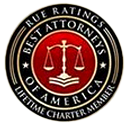When you’re in a car accident, you need to know what will happen next. Is it a criminal matter, or do you need to start a civil case? Can it be both? The Gibbons & Crichton, Personal Injury & Accident Lawyers explain whether car accident cases are civil or criminal.
Is a Car Accident a Civil or Criminal Matter?
Usually, a car accident is a civil case where the victim pursues their own interests. However, there are some circumstances where the District Attorney may file criminal charges.
Even if the prosecutor pursues criminal charges, the victim may still file their own civil case, regardless of the outcome.
When May a Car Accident be a Criminal Case?
There are several circumstances where a car accident may be a criminal case:
- Hit and run – 75 Pa. Code 3744; 75 Pa. Code § 3745
- Drunk driving/DUI – 75 Pa. Code § 3802
- Homicide by vehicle – 75 Pa. Code § 3732
- Homicide by vehicle/driving under the influence – 75 Pa. Code § 3735
- Reckless driving – 75 Pa. Code § 3736
- Driving while suspended or revoked – 75 Pa. Code § 1543
- Drag racing – 75 Pa. Code § 3367
Criminal penalties for traffic offenses vary significantly. For example, a conviction for homicide by vehicle is a third-degree felony, punishable by up to seven years in prison and a $15,000 fine.
When drunk driving is involved, there is a three-year minimum and up to 10 years in prison. On the other hand, drag racing is a summary offense.
If the District Attorney files criminal charges, you can still bring a case yourself. In fact, it is almost certain that you will need to file your civil case to fairly recover your damages. Criminal and civil cases vary in some key respects.
Differences Between Civil and Criminal Car Accident Cases
Burden of proof
The burden of proof in a criminal trial is beyond a reasonable doubt. In a civil trial, the burden of proof is a preponderance of the evidence. The standard is higher in criminal cases.
Prosecutor discretion
The prosecutor controls the pursuit of a criminal case. They decide what charges to file, how to present evidence and whether to extend a plea offer. In a civil trial, the plaintiff makes these decisions.
Restitution
Limited restitution is available in a Pennsylvania criminal case. Under 18 Pa. Code § 1106, where a victim sustains personal injury as a direct result of a crime, the court must sentence the offender to pay restitution. A civil award is reduced by the amount paid under a criminal judgment. In a civil case, the victim may claim full damages including pain and suffering and other non-economic damages.
The jury and verdict
There are 12 jurors for a criminal trial. There are six jurors for a civil trial. A criminal verdict must be unanimous (234 Pa. Code § 648). A civil verdict may be rendered if 5/6 jurors agree. (42 Pa. Code § 5104).
Rules of procedure
Criminal proceedings are governed by the Pennsylvania Rules of Criminal Procedure. There are circumstances whether which the jury determines the penalty, but the judge often determines the defendant’s sentence. Civil proceedings are governed by the Pennsylvania Rules of Civil Procedure. The jury decides what damages to award in a civil case.
Is a Civil Case Impacted by the Outcome of a Criminal Case?
In Pennsylvania, the outcome of a criminal case may be admissible in a subsequent civil trial. However, the rule in Pennsylvania is nuanced. Only significant convictions are admitted. If the conviction is for a minor traffic or summary offense, it is not admissible.
For example, in Folino v. Young, 368 Pa. Superior Ct. 220 (1987), the court ruled that it was appropriate to admit evidence of the defendant’s conviction of homicide by vehicle. They said that someone charged with such a serious offense would present their best defense in criminal proceedings. They wouldn’t plead guilty simply as a matter of convenience and expediency like someone might in a traffic offense.
In Pennsylvania, the standard is whether the criminal matter is serious enough that the defendant would be inclined to fully defend themselves at the proceeding. See Hurtt v. Stirone, 416 Pa. 493 (1965); In re Estate of Kravitz, 418 Pa. 319 (1965); Stumpf v. Nye, 950 A.2d 1032 (Pa. Super. 2007).
The Fifth Amendment
The Fifth Amendment may impact a civil case. Under the Fifth Amendment of the United States Constitution, a person can’t be compelled to incriminate themselves if their answers may subject them to criminal prosecution. Lefkowitz v. Turley, 414 U.S. 70 (1973). The Fifth Amendment doesn’t give a defendant full protection from discovery in a civil proceeding. It doesn’t protect against non-communicative acts like appearing for a deposition.
Previous testimony
A prior inconsistent statement made in a criminal proceeding may be used to impeach witness credibility in a subsequent civil proceeding. 225 Pa. Code § 613.
Is evidence of acquittal admissible in a subsequent civil proceeding?
Evidence of acquittal is not admissible in a subsequent civil proceeding.
Which Completes First: A Civil or Criminal Car Accident Case?
Usually, a criminal case is completed first. There are several reasons, including the defendant’s right to a speedy trial and court scheduling as a practical matter. Since you are responsible for proving your case in civil court, you have time to conduct discovery and gather evidence.
As your lawyers, we can help you understand the timeline in your case and what to expect as your case moves forward.
Summary of Car Accident Civil and Criminal Matters
- If you have been in a car accident, your case may be a criminal matter, a civil matter, or both types of cases.
- The District Attorney bringing criminal charges against a driver doesn’t stop you from pursuing a civil case for compensation. You more than likely should pursue a civil case to truly receive the compensation that you deserve.
- The outcome of the criminal case doesn’t necessarily dictate the outcome of the civil case. Because the burden of proof is lower and the jury doesn’t have to be unanimous, the two cases may result in different outcomes.
- You may choose the attorney to represent you in your civil case.
Get Legal Help with Your Civil Car Accident Case
If the defendant faces criminal charges following a car accident, you may still have a civil claim against them. Protect your rights at the earliest chance you get. We invite you to speak to an attorney at Gibbons & Crichton about your case. We can explain how criminal proceedings may impact your claim, and we work hard to pursue maximum compensation.
Call 215-274-0173 or message us today.














